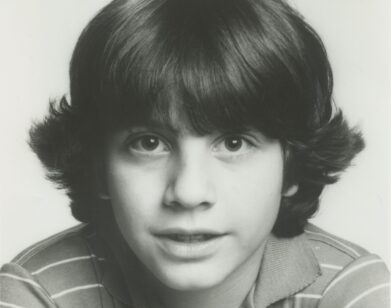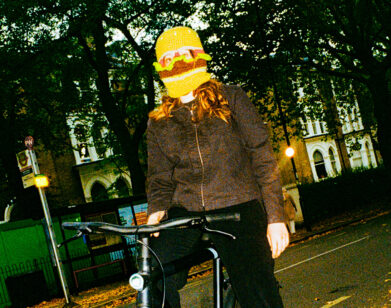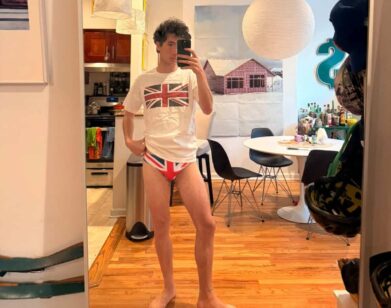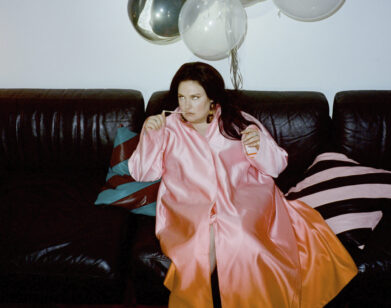15 Famous Authors Ask Joyce Carol Oates Anything
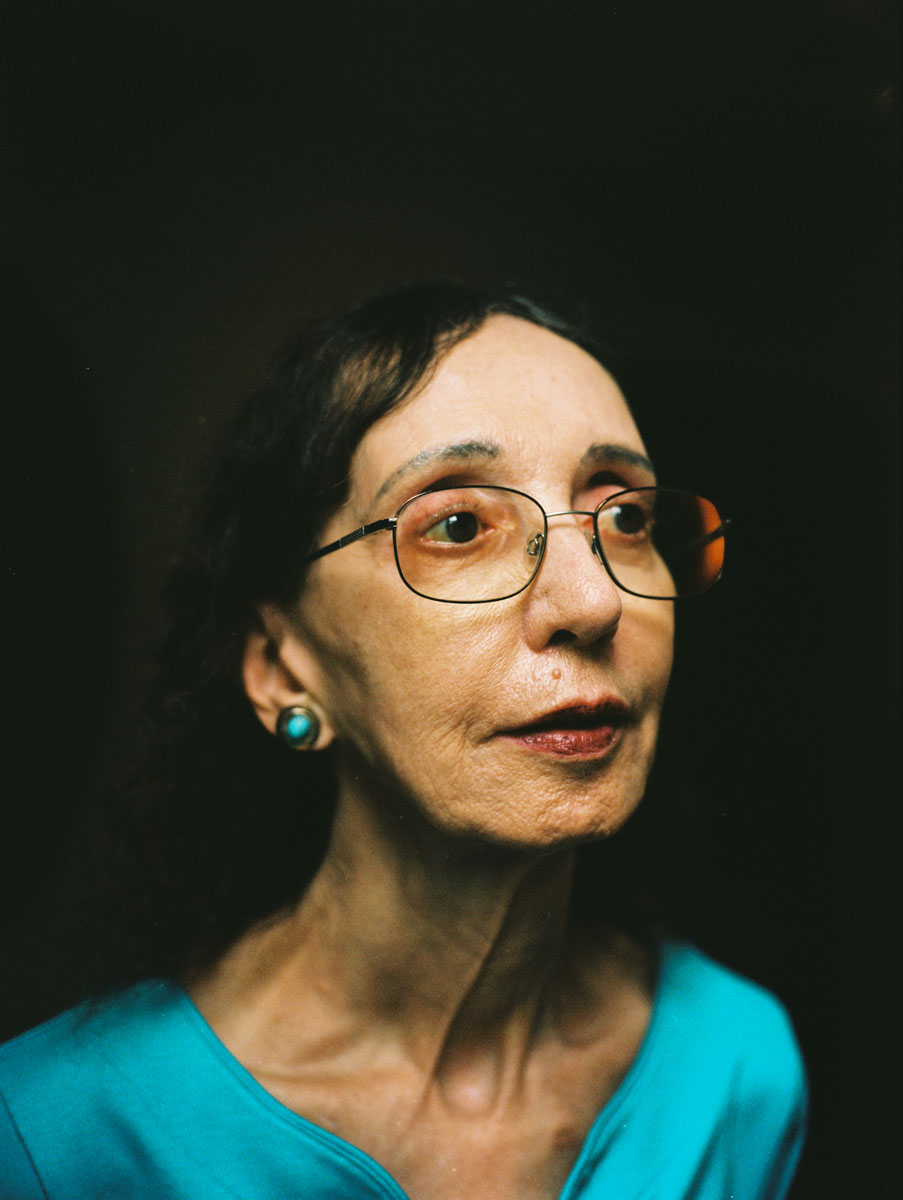
If there are any living authors in the running for the title of master American storyteller, Joyce Carol Oates is surely on the shortlist. The 80-year-old writer has become something of a byword for prolificacy—and rightfully so, as she has published 149 books—and yet rarely is it mentioned what a staggering variety of literary genres she’s tackled. It’s impossible to think of another author who has thrived in writing romance, crime, horror, historical biography (notably, her stunning retelling of Marilyn Monroe’s life in her 29th novel, Blonde), the suburban domestic, the small-town tragedy, mythical allegory, fantasy—the list goes on. This fall, Oates adds dystopian science fiction to her pantheon with her latest novel, Hazards of Time Travel (Ecco). In this wildly inventive tale bouncing between past and future, a free-spirited young thinker in a techno-militant, totalitarian version of the United States of America is convicted of “treason-speech” for asking basic historical questions. As punishment, she is sent back to the idyllic world of a 1950s Wisconsin college town for “re-education.”
Not surprisingly, Oates doesn’t stick to a single format. She’s also an acclaimed essayist, playwright, poet, and short-story writer (her extraordinary 1966 story, “Where Are You Going, Where Have You Been?,” dedicated to Bob Dylan, is the perfect primer for the budding Oates reader); a longtime professor at Princeton University; a perennial Nobel Prize forerunner; and a fiery Twitter user, with 187,000 followers and counting. While the world spins with her many stories, far less is known about the author herself. To celebrate the release of her 72nd novel, we invited 15 writers to pose a question apiece to the American literary icon. Oates responded in record time.
———
HEIDI JULAVITS: Was there ever a time that you got physically lost and thought you’d never find your way home?
JOYCE CAROL OATES: Yes, once, in a forest in New Jersey not far from where I live right now in Hopewell Township. But I was not really far from home, just unable to find my way out of this dense forest with no evident paths or trails. It was a truly panicky situation, which would have been so much, much worse in a genuine wilderness setting. One of the traumatic memories of my life is getting “lost” in a department store when I was very young and had wandered off from my mother. Somehow, I’d dared to take an escalator to another floor and couldn’t figure out where I was or how to find my mother. A kindly saleswoman rescued me. Of course, I wasn’t really “lost,” yet the memory remains with me, vivid and painful. It is so terrible to read about children separated from their parents at our southern border—acts of surpassing cruelty and callousness perpetrated by our own government.
———
EDMUND WHITE: In your fiction, you seem to know so much about the different worlds of incarceration, grave-digging, refugees, real estate, and even the topography of Niagara Falls. How do you research all these subjects? Do you have a researcher? Do librarians help you? Do you keep files of clippings?
OATES: Research is the innocent part of writing, as John Updike once said. I love to research subjects so obscure that no other writer would wish to visit them, like, for instance, Woodrow Wilson’s stressful and serio-comic sojourn as president of Princeton University that I researched for my novel The Accursed [2013]. Much of my research for Blonde [2000] involved watching all of Marilyn Monroe’s films in chronological order. My research for The Man Without a Shadow [2016] was stimulated by reading books about “H.M.,” the most famous amnesiac in the history of neuroscience, which my husband, Charlie Gross, a neuroscientist, owns. Teaching for one semester at San Quentin and then taking a grueling “guided tour” of the prison stimulated my thinking about material that would be incorporated in my novel Carthage [2014]. I’d grown up near Niagara Falls, so much of The Falls [2004] was based on personal experience and memory, which is the case with most of my fiction. It’s usually some mysterious commingling of personal experience, memory, imagination (exaggeration?), and research of the old-fashioned type—books and libraries, rather than merely “online,” which seems too easy.
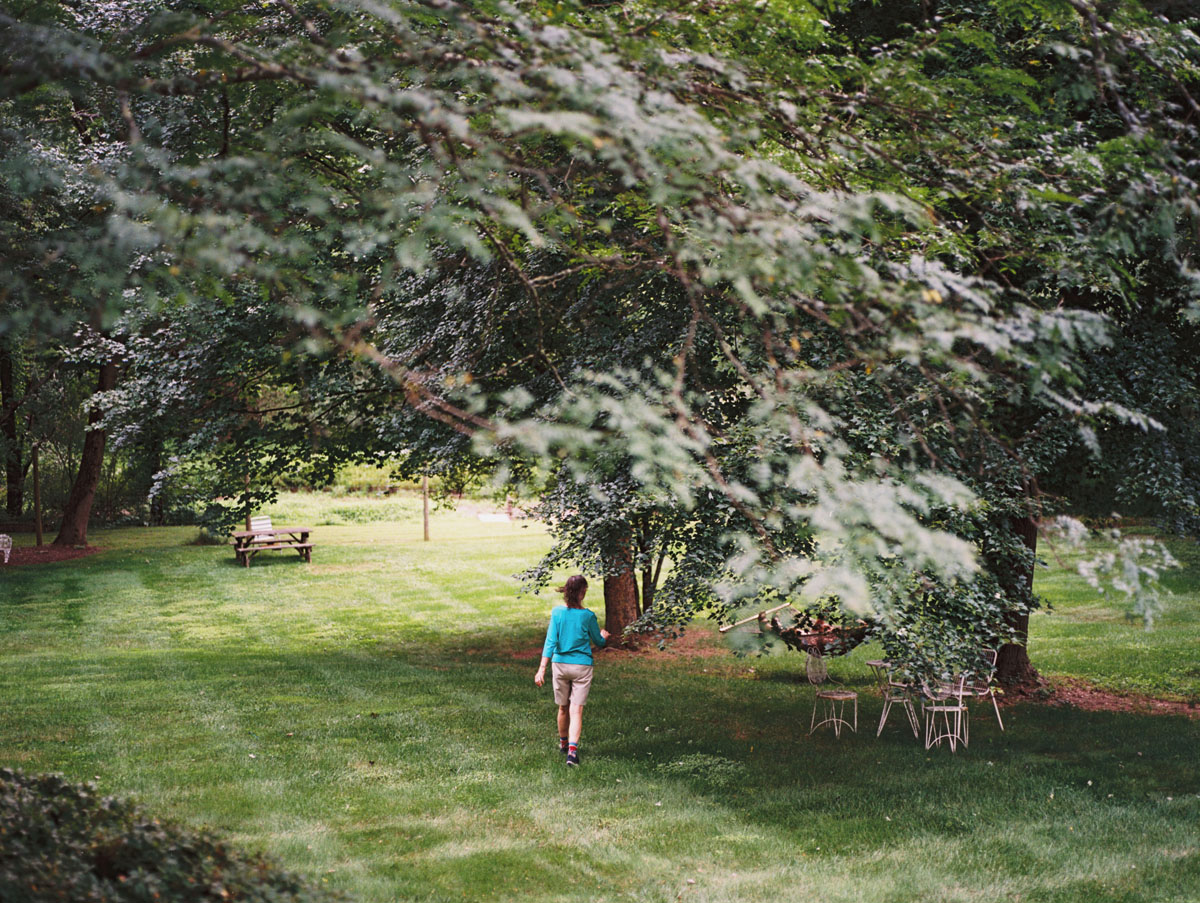
Joyce Carol Oates at her home in Princeton, New Jersey.
STEPHEN KING: What’s the scariest short story you’ve ever read?
OATES: The most truly terrifying reading experience of my life came when I was very young, and it was without a doubt Lewis Carroll’s Through the Looking-Glass—particularly the final chapter. How bizarre that this ontologically disruptive work of fiction is considered a children’s book. The grotesqueries and scarcely disguised horrors—madness, murderousness, dementia, cannibalism, physical distress—of Lewis’s great work have certainly entered my unconscious, residing in its most remote and impregnable underground cavern, established at a time when I was 8 years old, when the phenomenon of “memory” was new. As an adult, I’ve encountered many unnerving works of literature that linger in the memory and resurface in times of unease or weakness. Odysseus’s visit to the underworld, though obviously fantastic, seems to the reader utterly realistic, plausible, and terrifying in its matter-of-factness. We are led to think, “Yes, the afterlife would be exactly like this: a sort of endless bad dream on the verge of dementia.” Nothing is more terrifying than [Anton] Chekhov’s short story “Ward No. 6,” although Chekhov’s “The Black Monk” is a close second. A third, long story of Chekhov’s unnerved me so much that I stopped reading it and have even forgotten the title. (It’s a little-known story about an elderly man of some distinction in a loveless marriage and surrounded by people for whom he feels little more than contempt; if you ask what is terrifying about this story, it’s the loss of spirit, meaning, clarity, the will to live, and sanity that Chekhov tracks so pitilessly.) The most terrifying works of fiction are likely to be realistic, even domestic, not galvanized by the supernatural, fantastic, or “action.” When I first saw your question, for a moment I thought you were asking what story of mine is the scariest. That would be “Big Momma,” in The Doll-Master [2016], a story so horrific that, had I not written it, I could not have finished reading it.
———
MEGAN ABBOTT: Do you dream about your characters?
OATES: A few times I have dreamt of characters and situations, which eventually—I do mean “eventually,” as it was not an easy transformation—evolved into novels. Those include Mudwoman [2012] and Starr Bright Will Be with You Soon [1999].
———
LORRIE MOORE: After whom are you named? For instance, who is the “Carol” of your middle name?
OATES: No one in particular, I think. Clever people ask if I am named after James Joyce. Unfortunately, no, my parents had never heard of James Joyce at the time of my birth. “Joyce” strikes the ear as hopeful, containing some of the melodic uplift of “joy.” “Carol” is of lesser interest, I think. The masculine equivalent, “Carroll,” with its doubled r’s and l’s, seems so much more weighty and dignified. If I’d published my books as J. Carroll Oates, what a happier career!
———
A.M. HOMES: What is a good day for you?
OATES: A good day is a quiet day, much of the time spent gazing out my window here on the second floor of our house, where I can look down into my modest garden of black-eyed susans, pink and white phlox, and purple coneflowers while trying to organize my thoughts. The initial stages of writing are most difficult for me, trying to establish a voice, trying not to become discouraged. Once immersed in a story, a novel, or a memoir, we are likely to be carried along by the momentum and pass a point of no return—that is the point, as Graham Greene once noted, after which you are not in danger of quitting. A writer-friend of mine (initials “L.M.”) once remarked that she would like to be married, which is not to say “get married,” but already to “be” married, for several years already, thus in a comfortable mode, without having to think much about circumstances, and so, too, this is the ideal situation for the writer—to already be immersed in the work of fiction, not flailing about trying to determine its perimeters, so that from this point onward the writing is a matter of simply writing. In each sentence, inspiration will be a possibility. Our “work” is to lay out these sentences, one following another in the perfect sequence.
———
STEVE MARTIN: How do you research the darker elements of your works?
OATES: I should probably research lighter elements. The darker seems just so much closer, natural, inevitable, and universal.
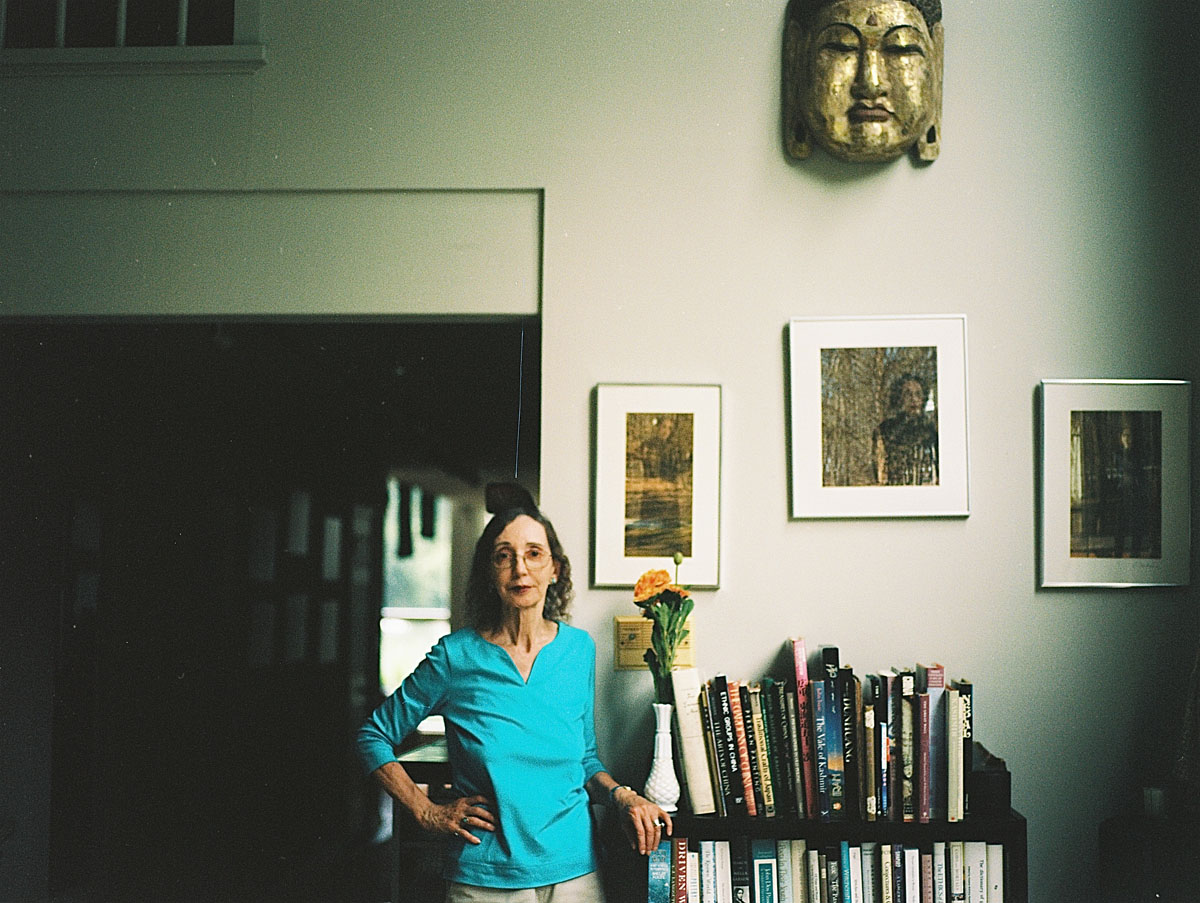
CLAUDIA RANKINE: As a white author, do you think that having to grapple with race in a work diminishes you or it? Is that what was behind your tweet last year regarding Othello? (“Othello is a great enough work of dramatic art that, if the racial element were entirely removed, the play would still be a profound accomplishment. That Othello is a ‘Moor’ could be made—almost—irrelevant.”)
OATES: No one “has to grapple” with anything in writing. Each project is individual and carries its own challenges. Our country is racially and ethnically diverse so it is likely that a realistic writer would wish to write about this complex society, but each in her own way, surely. Having seen a production of Othello, some of us were wondering if the play might work as tragedy without any racial element at all… Not sure if this could be possible. Directors try different angles, interpretations. A recent Othello at Shakespeare in the Park was cast with a second black actor who seemed to double or shadow Othello himself. The effect might have been to diminish Othello’s uniqueness, inadvertently. However, Othello could be presented as a superior man, a natural-born soldier, beside whom all other men are diminished, especially Iago. This would be the germ of the tragedy, that Othello is both superior to all other men in the play yet “blindly” jealous.
———
LENA DUNHAM: What does your body feel like when you’re writing violence?
OATES: Nothing out of the ordinary…
———
BRET EASTON ELLIS: Is the novel dead?
OATES: Novelists are born and die. Novels prevail. [We are approaching] the 200th year of Mary Shelley’s Frankenstein. Mary Godwin—at the time she wasn’t yet married to Percy Bysshe Shelley—was just 18 when she began the novel, and 19 when she finished it. Virtually no other novel has had such a tumultuous life. Of course, Mary Shelley never wrote anything quite like it again, nor has anyone else. A great novel that manages to acquire archetypal status may live virtually forever, while its creator is forgotten to all but a few readers.
———
FRANCINE PROSE: Is it true that you used to write your novels during faculty meetings?
OATES: No.
———
GILLIAN FLYNN: Your writing has continually found inspiration in iconic female victims, including Mary Jo Kopechne, JonBenét Ramsey, and the Black Dahlia. If you could know the true endings of these women, would you, or is it enough to have created your own narratives for them?
OATES: There is something fairy-tale-like about these figures, whom we perceive as victims—“female victims.” We don’t know the full story, we don’t even know who killed JonBenét Ramsey or the Black Dahlia. Thus, they inhabit a fantastical dimension in our imaginations. We can make of them what we will, as in a thought experiment. All of writing is the investigation of an alternative reality, but never more than these cases, in which the “real” is contextualized by the imagined.
“I should probably research lighter elements. The darker seems just so much closer, natural, inevitable, and universal.”—Joyce Carol Oates
———
MARY GAITSKILL: What are your feelings about the #MeToo movement? If Marilyn Monroe, a character in your novel Blonde, could respond from beyond the grave, what do you think she would have to say?
OATES: The #MeToo movement might have come earlier in history—centuries!—but at least it has swept upon us at last, thanks primarily to a few pioneering, courageous women and a few men who have helped proclaim their cause. Very easily these gains can be lost. For every advance women make, there seems to be a tremendous tsunami-like backlash preparing to sweep over it to drown and obliterate its gains. At least now when a new sexual predator is unmasked in these stunning series of exposés in The New Yorker, for instance, there is a ready, sympathetic population of readers to receive them without skepticism and denial as in the past.
———
JEFFREY EUGENIDES: Our colleague at Princeton, Tracy K. Smith, is very interested in near-death experiences. What do you think about such things? Are the people who report seeing a light, etcetera, deluded or in touch with some other reality, however transient? Do you believe in an afterlife at all, or do you think that’s nonsense? More specifically, how does your belief or non-belief affect the way you live?
OATES: It’s always fascinating to explore such subjects. Indeed, if one has what seems to have been a near-death experience, it’s not likely that she or he would wish to consider that it was only just a dream or a hallucination, though science will tell us that mental life exists only in a living brain and cannot survive without a living brain. (Indeed, consciousness is a small part of the actual brain, and sufficient damage to our brains will destroy or corrode our personalities and memories; in this way, there might be an afterlife experience awaiting all of us, in time. That’s to say, not only is there not likely to be an afterlife following our deaths, there is much more likely to be a “living death” within the span of our lives, if our brains are injured or diseased while our bodies prevail.) I am interested in writing about such beliefs or non-beliefs as a subject for fiction. “Nothing human is alien to me.”
———
RUMAAN ALAM: You’ve more than once written fiction with some relationship to facts. Is the novelist bound by any ethical or moral constraints, or is any story fair game for an artist?
OATES: Writers and artists don’t typically listen to anyone else and rarely take advice, so it’s not likely that any ethical or moral constraints could be established. For my own part, when I write about a factual subject, or an actual person (like Norma Jean Baker, who became “Marilyn Monroe”), I try to adhere to the obvious, historical facts—these provide the grid of the plot. I would not invent large-scale events, but I would need to imagine much, in the interstices of what we know of the historical, so that there is a sort of fine-woven net of the historic and the imagined. The challenge is to weave the fabric seamlessly together. Perhaps a greater challenge is to write about an historic figure in such a way that she or he comes alive as in a vibrant and convincing novel.
———
Stephen King is a writer who lives in Maine and Florida. His next book, Elevation, will be released in October. Claudia Rankine is a poet and professor at Yale University. Megan Abbott is an Edgar Award–winning writer who lives in New York. Her novel Give Me Your Hand came out this summer. Heidi Julavits is a writer. She teaches at Columbia University. Lorrie Moore is a writer and teacher in Nashville. Her latest book is a collection of non-fiction pieces titled See What Can Be Done. Bret Easton Ellis is the host of The Bret Easton Ellis Podcast, available on Patreon. Lena Dunham is a writer, actress, and director who, with Jenni Konner, co-created the television series Camping, which debuts on HBO in October. Steve Martin is a writer, actor, and musician. His Emmy-nominated comedy special with Martin Short, An Evening You Will Forget for the Rest of Your Life, is now out on Netflix. Francine Prose is a writer whose new essay collection What to Read and Why was released this summer. Mary Gaitskill is a writer whose latest book is a collection of essays titled Somebody with a Little Hammer. Gillian Flynn is a bestselling author and screenwriter based in Chicago. Widows, the film she co-wrote with Steve McQueen, premieres in November. Rumaan Alam is a writer and editor in New York. His novel That Kind of Mother was published this spring. Edmund White is a writer in New York City. His latest memoir, The Unpunished Vice: A Life of Reading, was released this summer. A.M. Homes is a writer in New York. Her new short-story collection, Days of Awe, was published this spring. Jeffrey Eugenides is a writer and professor at New York University. The 25th anniversary edition of The Virgin Suicides is out in October.

